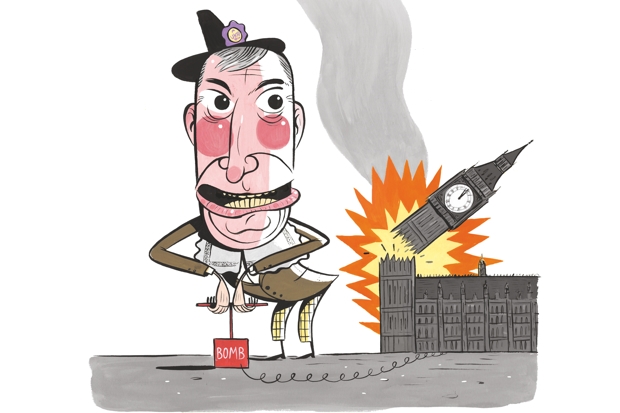With Ukip widely expected to win big in May’s elections, 2014 may well be the year of the populist party. Not easily categorised as left or right wing, populist parties across Europe pit the good, honest, ordinary voter against the out of touch, liberal, mainstream political elite. The populists claim to represent the former against the latter, an authentic and honest voice in a world of spin and self-interest. Nigel Farage is not the only one to be surfing the wave of widespread disillusionment, with politics in general and politicians in particular.
In Italy, Beppe Grillo straddles both left and right. The popular comedian and blogger ran on a vehemently anti-establishment ticket, selecting his candidates online and refusing to give any interviews to the Italian media, communicating instead through his own blog. Despite going against every P.R. rule, one in four Italians voted for his Five Star Movement last year.
Populist parties are keen on social media, and — as I explain in my forthcoming IPPR essay — they are increasingly good at it. Social media is an alternative to the mainstream media, which many supporters of populist parties strongly distrust. The short acerbic nature of populist messages works well too. Beppe Grillo used social media to quite devastating effect; the most Followed and Liked politician in Europe by a mile, he mocked Berlusconi as a ‘psycho sex dwarf’. Of course, all the while, inside Grillo’s Trojan Horse were exhortations for his supporters to form local meet up groups, discuss politics, get out and vote and ask friends to do likewise.
In the UK, the levels of mistrust in political institutions is every bit as high as the rest of Europe. Until now the populist storm has avoided us, but the roof might be about to come off. In 2011, George Galloway won the Bradford West by-election with an eye-watering 36 per cent swing from Labour. Similar to Grillo, Galloway himself credited much of his success to Twitter, as a way to circumnavigate the stranglehold the main parties have on local and national media, and the might of their established local presence and organising force. Although not social media fanatics, UKIP managed around 25 per cent in this year’s local council elections, and is expected to do even better in next year’s European poll.
The future belongs to the party that can respond to concerns that people have in a way that makes sense to them, without tipping into unhealthy populism: and using modern communications and technology to understand, connect, respond and mobilise. This will make for an increase in ‘shock’ results in the years ahead that will jolt some life into a stuttering democracy, making the whole system more chaotic, but hopefully also more dynamic, diverse, and open.
The full version of this article will appear in the forthcoming essay collection Democracy in Britain, Essays in honour of James Cornford to be published by IPPR in February.






Comments